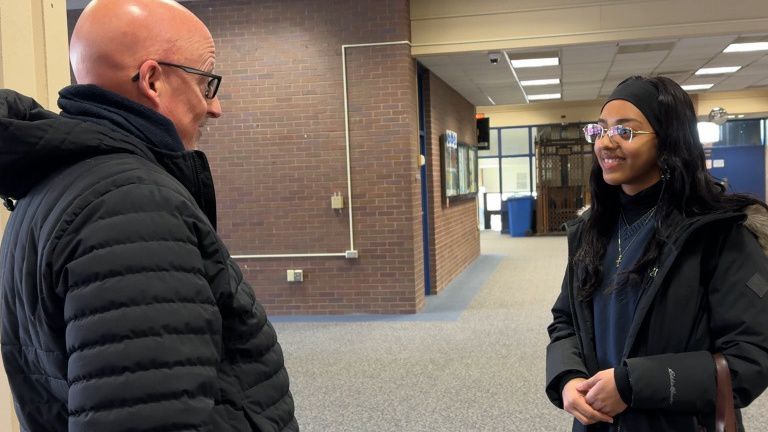Kaiel Johnson is constantly turning pages as he immerses himself in the latest book of the "Red Rising" series. Unlike many of his friends, Johnson spends one to three hours reading every day.
“It's just like I’m sucked in the book, and I’m kind of into like transcended state in a way,” Johnson said. “Honestly, my emotions depend on, like, what scene I’m reading.”
Nico Reyes would rather spend his time working out and playing sports or video games.
“I wish I could read books because I know they're a really good thing, but I guess I never really have the time, or I just don't have the patience really. That's a big part,” Reyes said.
Reyes isn’t alone. Pew Research findings compared the percentage of 9-year-olds, 13-year-olds and 17-year-olds who read for fun in 1984 to 2020. All age groups decreased, with the most drastic decline of 18% happening to 13-year-olds and young teens.
What You Need To Know
- Pew Research findings compared the percentage of 9, 13 and 17-year-olds read for fun in 1984 to 2020. All age groups decreased with the most drastic decline of 18% happening to 13-year-olds and young teens
- According to National Education Association research some educators believe reading is being used too often in standardized testing for comprehension and grading
- According to familyeducation.com, reading improves focus, concentration, vocabulary, analytical writing, mental stimulation and stress reduction, among other things
According to National Education Association research, some educators believe reading is being used too often in standardized testing for comprehension and grading. They say children also don’t appreciate being told books they want to read aren’t the “right books."
Sioban Sedney is the teen and outreach librarian at the Newburgh Free Library and has been working at libraries for about five years. She believes people aren’t into hobbies, like reading, as much due to the emergence of technology.
“I think that we're just constantly taking in information that it's not always our first line to say, ‘Hey, let me go pick up a book.’ You know, and especially for teens, you're reading and you're constantly taking information all day, that may not be your next step,” Sedney said.
She suggests teens who don’t read for fun try listening to audiobooks, so they can multitask reading with games or activities they enjoy.
Reyes said he needs to find a balance between school, sports, and activities so reading can be added to his schedule.
“I guess it's a little sad for sure. I mean, I’m definitely one of them, so I can't really speak too much,” Reyes said. “I would love to get into reading, and I think it's definitely like a suggested thing.”
Meanwhile, Johnson remains optimistic that there’s something out there for everyone.
“They just haven't been introduced to their type of style of book because everyone has different tastes, and everyone has different interests, so they just haven't found the book that's right for them,” Johnson said.
According to familyeducation.com, reading improves focus, concentration, vocabulary, analytical writing, mental stimulation and stress reduction, among other things.









